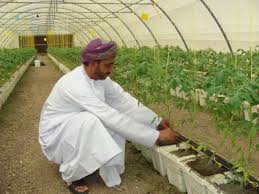
Addressing the Challenges of Arid Agriculture
Pakistan, with its vast arid and semi-arid regions, faces significant challenges in ensuring food security and sustainable agricultural practices in areas with limited water resources. To address these challenges, Pakistani researchers have been pioneering innovative solutions to improve agricultural productivity in such regions. These solutions focus on enhancing water-use efficiency, developing drought-resistant crops, and promoting soil conservation techniques. Through research and collaboration with international agricultural organizations, Pakistani scientists have made considerable strides in finding ways to adapt farming practices to the harsh climatic conditions prevalent in arid areas.
Water-Saving Technologies and Techniques
One of the key areas of focus for Pakistani researchers has been the development of water-saving technologies to combat the growing water scarcity in arid regions. Techniques like drip irrigation, which delivers water directly to the plant roots, and sprinkler systems are being adapted and optimized for local conditions. Researchers are also exploring the use of smart irrigation systems that utilize sensors and weather data to ensure crops receive the right amount of water at the right time, reducing wastage. Additionally, research into rainwater harvesting methods has allowed farmers to collect and store water during periods of rainfall, enabling more efficient water usage during dry spells.
Drought-Resistant Crop Varieties
Developing drought-resistant crop varieties is another significant achievement of Pakistani researchers. By using biotechnology and crossbreeding techniques, scientists have created crops that can survive and yield better in areas with little water. These drought-tolerant crops, such as certain varieties of wheat, rice, and maize, require less irrigation and can withstand the stress of prolonged dry periods. The introduction of these varieties has helped increase food production in arid regions, ensuring that farmers are better equipped to cope with the impacts of climate change and the increasing unpredictability of weather patterns.
Soil Conservation and Fertility Enhancement
In arid regions, soil erosion and nutrient depletion are common problems that reduce agricultural productivity. To address this, Pakistani researchers have developed sustainable soil conservation practices, such as agroforestry and crop rotation, which help restore soil fertility and reduce erosion. They have also explored the use of organic fertilizers and bio-pesticides, which improve soil health without depleting its nutrients or harming the environment. Additionally, scientists are promoting the use of mulching and composting to maintain soil moisture and reduce the need for excessive irrigation, making farming more sustainable in the long term.
Impact on Rural Communities and Future Outlook
The sustainable agriculture solutions developed by Pakistani researchers are having a transformative impact on rural communities in arid regions. By adopting these innovations, farmers are able to increase their yields, improve their livelihoods, and reduce the environmental footprint of their farming practices. These advances in agriculture not only contribute to food security but also provide a foundation for economic growth in rural areas. Looking to the future, continued investment in research and technology is crucial to developing even more resilient and efficient farming methods that can further strengthen Pakistan’s agricultural sector, particularly in the face of climate change and water scarcity.
Master chess and start earning today with our detailed tutorial

